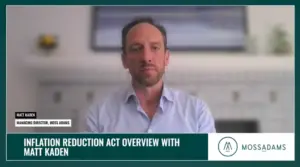What the Colonial Pipeline Hack Means for Fuel Supplies
Fuel traders are working to avoid gasoline and diesel supply shortages on the East Coast of the United States following a ransomware attack Friday on Colonial Pipeline Co.
Watch below as Bloomberg’s Javier Blas breaks down the potential short and long term impacts.
Host: Javier, you talked to us, first of all, about what traders are doing to try and get around this blocked pipeline?
Blas: Well, the pipeline is a massive conduit for gasoline and other refined products all the way from the US Gulf of Mexico coast where most of the refineries are located, to the consumption centers are in the East Coast are on the Atlantic coast. So far, what traders are trying to do is bring supplies by sea where that’s possible. One option certainly is in the New York harbor, which can bring a lot of gasoline supply from Europe. They can use also barges moving out from the US Gulf Coast into Florida and some other markets. But beyond that, they really need the pipeline back into running and they need that soon. If we have another delay of 24 hours, probably that’s manageable. But anything beyond 24 hours is going to get very problematic to supply some areas, in particular, the area around Atlanta.
Host: If it lasts more than two or three days. How much shortages are we actually going to see? I mean, is it possible that cars won’t be able to refill their tanks?
“We may see some localized shortages is not going to be widespread”
Blas: Well, the good news is that demand is down, particularly for jet fuel, but also for gasoline because of the impact of COVID. So we have a bit more cushion, but we are going to be soon probably to see panic buying by some consumers to see the news about the problem of the pipeline. As you were mentioning, this is not just a regular pipeline. It’s a massive complex. More than 5,500 miles long, connects about 25 refineries to about 250 different terminals around the United States. And transport 2.5 million barrels of gasoline, diesel and jet fuel every day. Just to put that into context, that’s more than Germany consumes as a whole nation. So that pipeline equals Germany. We will see shortages. We may see some localized shortages is not going to be widespread, but in particular locations that they really depend on the pipeline and they don’t have any other alternative. And I’m thinking, again, in the area around Atlanta, we may see localized shortages.
*Bloomberg contributed to this content.
—
Follow us on social media for the latest updates in B2B!
Twitter – @MarketScale
Facebook – facebook.com/marketscale
LinkedIn – linkedin.com/company/marketscale








